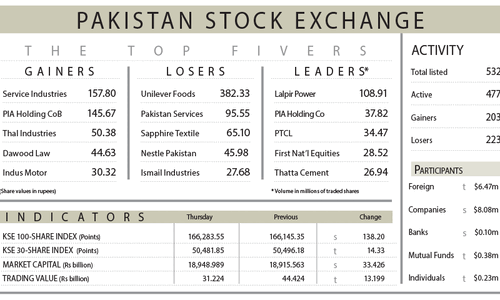State institutions, such as the Capital Development Authority and Defence Housing Authority (DHA) in Islamabad, implicitly or explicitly support urban sprawl through regulations that limit the height of residential constructions. This is partly due to their limited capacity to manage high-rise buildings effectively, lacking the necessary equipment for rescue operations.
At the same time, paradoxically, they have entered the real estate sector as partners, with many civil sector organisations establishing cooperative housing societies and the military creating DHAs near their station headquarters.
In contrast to the complexities associated with the construction of high-rise buildings, involving significant time, capital, and risk with limited demand until project completion, open plots represent a more cost-effective alternative.
This approach encompasses the development of main gates, boundary walls, roads, utilities, and designated areas for educational and healthcare facilities. It garners increased attention and revenue with minimal effort. An example of disparity is the recent Nasla Tower demolition due to regulatory non-compliance and the regularisation of a hundred-acre land in Bani Gala.
The prevalence of ‘plot culture’ not only hampers potential for wealth creation
Consequently, this trend has attracted numerous capable and talented young individuals to civil and military careers, drawn by the promise of perks, including subsidised land plots. However, the prevalence of this ‘plot culture’ not only hampers Pakistan’s potential for wealth creation but also fuels urban sprawl by promoting new schemes and housing societies centred around plot-based development.
Consequently, under state patronage, a staggering 1,083 projects from various developers, valued at Rs342 billion, were registered and approved under amnesty schemes. Nevertheless, only 210 flat projects, with the ambitious goal of providing three million housing units for the impoverished, were registered. Out of these, just 48 proposals, comprising a mere 70,000 housing units, received final approval.
In shaping social norms, these special interest groups have successfully portrayed the allocation of plots in the public sector as beneficial rather than unfair, elevating the status of real estate agents and developers as respectable figures. As a result, virtually every state department has ventured into developing its housing societies and providing plots to their employees, including the Supreme Court.
In the political arena, a noteworthy transformation has occurred over the past half-century. While those contesting urban area elections during the 1970s predominantly came from the middle class and possessed high levels of education, professional backgrounds, and political experience, the contemporary landscape reveals a different trend. Nowadays, substantial portions of urban election candidates, regardless of their party affiliations, tend to be affluent individuals with direct or indirect ties to the thriving real estate sector.
Many of them face allegations of corruption, land grabbing, and, in some cases, even murder. However, they continue to receive widespread voter support due to their perceived legitimacy in society. This phenomenon has recently emerged as a prevailing societal convention, primarily attributed to the substantial impact exerted by influential entities via their corporate social responsibility initiatives, such as Bahria Dusterkhawn, and other comparable endeavours.
These influential figures, upon assuming positions of authority, formulate amnesty programs designed to facilitate the real estate and housing sectors, thereby potentially impeding the progress of various other economic sectors within Pakistan.
Finally, yet importantly, these interest groups strategically employed media conditioning to advocate for their cause, influencing how people perceive the issue, the terminology they use to discuss it, and their overall perspective. To promote urban expansion, they propagated the notion of a housing deficit in Pakistan, estimated at around 10-12m units.
The annual demand for housing amounts to 350,000 units, but only 150,000 units are being constructed in urban areas. Assuming an average family size of five members, this suggests that a substantial portion of the population, potentially 50-60m people, may lack adequate housing, but where are they residing?
Furthermore, they employ various marketing strategies, including online promotion through social media and other digital platforms, showcasing these institutions’ names and visual branding, as several housing societies have partnerships with prestigious educational institutions and healthcare facilities, securing land for them. State institutional naming also serves as a potent marketing tool, enhancing property value and instilling a sense of social security in buyers associated with reputable institutions.
Influential segments, including political elites in private housing societies, bureaucrats in cooperative housing societies, and the military elite in DHA, are generating financial advantages through the plot culture. This practice simultaneously facilitates easy money while also taming urban sprawl. Despite their involvement in policymaking, they remain silent due to their stakes in this shared economic framework.
The government must implement rigorous controls to address uncontrolled urban sprawl, which poses significant societal, environmental, and financial risks. Environmental concerns encompass declining groundwater levels and deteriorating air quality etc. Societal repercussions involve escalating crime rates, including thefts, robberies, kidnappings, murders, and home invasions in major urban centres.
The writers are professors at the National University of Modern Languages, Islamabad
Published in Dawn, The Business and Finance Weekly, October 23th, 2023


































